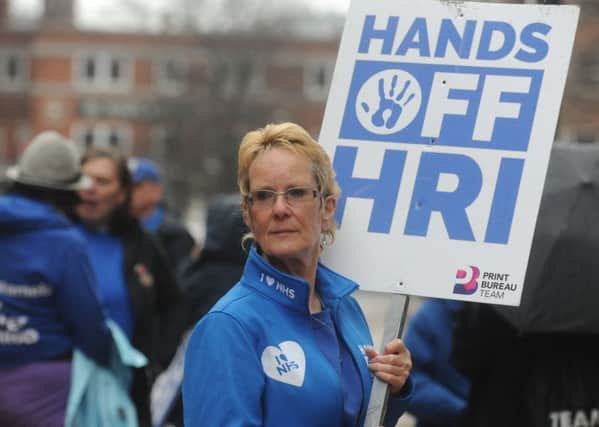The Yorkshire Post says: A victory for patient power. Jeremy Hunt listens to reason over A&E


As such, it’s only fair to acknowledge Health Secretary Jeremy Hunt’s wise decision to effectively veto plans to downgrade Huddersfield Royal Infirmary – and transfer A&E services to Halifax. A victory for common sense, it’s also a triumph for ‘people power’ and the Hands Off HRI Campaign which mobilised public support before lives were put at unnecessary risk.
Mr Hunt made reference to this when he ordered local health bosses to go back to the drawing board. “The proposed changes have provoked huge anxiety among local people who have raised a variety of concerns, many of which have been made to me directly,” he wrote. At least he has listened.
Advertisement
Hide AdAdvertisement
Hide AdAs long ago as February 2016, The Yorkshire Post challenged Mr Hunt – and his then deputy Ben Gummer – to reveal if they would sanction such a downgrade in their own constituencies. “Why, therefore, should Huddersfield be any different? A ‘yes’ or ‘no’ answer will suffice,” said one editorial column. The regret is that local NHS users, and campaigners, have endured so much anxiety. The Health Secretary said he wanted local leaders to “develop their plans without interference from government”, but he could have prevented much heartache by intervening earlier rather than allowing due process to be followed.
After all, the verdict of the Independent Reconfiguration Panel, the body which advises Mr Hunt on such matters, is damning.
It has cited “a wide variety of failings” on fundamental issues, not least questions of finance, implementation and insufficient provision of ‘out of hospital’ care.
As various NHS bodies look again at the provision of services in Huddersfield, a thriving town where 150,000 residents would have been left of A&E cover under the original proposal, and adjacent areas, they would be advised to start by considering any changes from the perspective of patients – the most important people of all – rather than policy-makers who rarely have to live with the consequences of their more ill-conceived ideas.